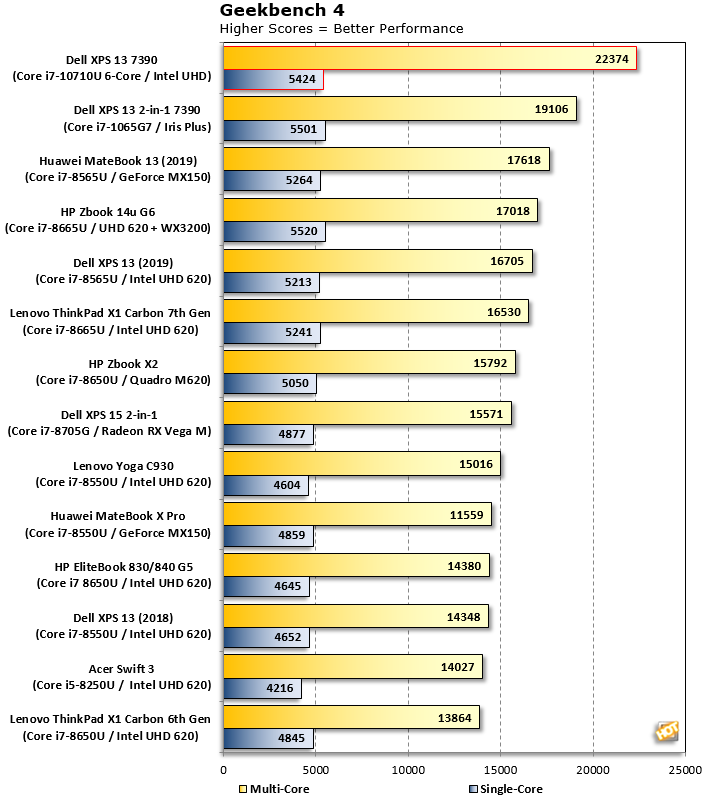Dell XPS 13 (2019) Slays Benchmarks With 6-Core 10th Gen Intel Comet Lake
When that refreshed convertible launched, it was available with one of three processors:
- Intel Core i3-1005 G1 processor (2C/4T, 4MB cache, up to 3.4GHz)
- Intel Quad Core i5-1035 G1 processor (4C/8T, 6MB cache, up to 3.6GHz)
- Intel Quad Core i7-1065 G7 processor (4C/8T, 8MB cache, up to 3.9GHz)
Not long after those Ice Lake processors were announced, Intel launched its 10th generation Comet Lake-U processors. Dell has since given us access to a new SKU of the standard XPS 13 that is rocking one of those fresh Comet Lake-U processors. More specifically, it is making available the Core i7-10710U, which is a 6-core/12-thread processor. Although Comet Lake-U is based on aging 14nm++ process tech, it still packs quite a punch within its 15-watt TDP.
The Core i7-10710U has a base clock of 1.1GHz, a single-core turbo clock of 4.7GHz, and an all-core turbo clock of 3.9GHz. With this new laptop in hand, we decided to put it through a few benchmarks to show what you can expect with respect to performance gains over the existing Ice Lake-U based offerings.

First up is Geekbench, where the 6-core Core i7-10710U puts up a strong showing against the 2-in-1 version of the laptop with a Core i7-1065G7 (Ice Lake-U) in the single-core benchmark. However, the Core i7-10710U really flexes its muscles in the multi-core benchmarks, where its extra two cores come in handy against the quad-core Ice Lake-U.

Moving along, we again see the Core i7-10710U coming up a little short in the single-core benchmark for Cinebench R20. However, it more than makes up for it in the multicore benchmark with a roughly 33 percent uplift over the Core i7-1065G7.

Finally, we decided to fire up BrowserBench, which focuses on web application performance. Here's the Core i7-1065G7 managed to edge the 6-core Core i7-10710U by roughly 8 percent.
We should stress that this is just an early look at performance of these new Comet Lake-U parts in the Dell XPS 13 and we hope to have an extended look at performance and battery life in a future article very soon, so stay tuned.




